
Dr. Anupama Saigal, Breast Surgical Oncologist.
AdventHealth Medical Group
A young patient was referred to me to discuss breast pain and the need for breast imaging. She was considered at high risk for breast cancer due to family history. In fact, I had taken care of her mother for breast cancer. Because of her elevated risk, I recommended genetic testing as well as high-risk imaging with annual mammograms and MRI. She was monitored closely and after about two years in my high-risk clinic, the screening MRI demonstrated a mass that was subsequently identified as a small invasive ductal carcinoma. Because we found the cancer at such an early stage, we were able to minimize the need for chemotherapy and radiation and perform a nipple-sparing mastectomy, which went a long way toward helping her feel whole. Although I am privileged to care for many breast cancer patients, this experience reminds me how important breast cancer screening and risk stratification are to achieving the best outcome for a patient.

Dr. Jeffrey Petrie, Joint Replacement Surgeon
Rothman Orthopaedics at AdventHealth
I had a 55-year-old patient with a very complex hip issue. For more than three decades, she had to have special shoes made for the large discrepancy in her leg lengths. She had also developed severe hip arthritis that was eating away at her active lifestyle, month by month. Despite all of this, she was never without an amazing smile.
I was the eighth hip specialist she had seen and, even though I knew we could help her, I was concerned about the long recovery she would have to endure. The surgery was far from routine, yet she continued to smile throughout her postoperative work with physical therapy and in the gym. As an orthopedic surgeon, I am not typically “saving lives” like my general surgery and emergency medicine colleagues. However, I find it incredibly rewarding to improve pain and function in my patients’ lives, keeping them active and keeping them smiling.

Dr. Mariel Szapiel, Neurosurgeon
Orlando Health Neuroscience Institute
I initially embarked on a career in biotechnology research, delving into the world of genes and molecules, but my true passion is in connecting with people. Transitioning to medicine allowed me to bridge science and humanity, and I eventually found my calling in neurosurgery, specializing in deep brain stimulation (DBS).
One patient’s story particularly stands out to me. This individual had endured tremors for a staggering 40 years. He was initially hesitant about DBS; we assured him the decision was entirely his. However, a conversation with another of our DBS patients changed his perspective, and he decided to proceed. The outcome was astonishing. He now lives tremor free.
Witnessing such a transformation is the most gratifying part of my job. Having that interaction, being able to turn lives around for patients, and seeing it happen right before my eyes is a profoundly beautiful and rewarding experience. It reinforces the incredible impact that medical science and compassion can have on the human spirit, and it’s a privilege to be a part of that journey.

Dr. John F. Lovejoy, Pediatric Orthopedic Surgeon
Chair of Orthopedics and Sports Medicine, Nemours Children’s Hospital
One of my most memorable moments was treating a young girl with a spinal deformity that caused severe complications, including a collapsed lung. As a result, she retreated into herself; she stopped talking and interacting with those around her. We developed an extensive treatment plan that included halo traction and eventually spinal surgery. She navigated bravely through physical, occupational and speech therapies with strong family support.
The treatment completely transformed her. Afterward, I vividly remember her family coming to me almost in tears. They were overjoyed because she was talking, breathing, eating, and interacting like any other child her age.
I often tell my patients and families that surgery is a small part of their treatment; the postoperative work they do will be the most challenging and impactful. In orthopedics, our medical interventions are short and immediate. It’s most inspiring to watch my patients take recovery into their own hands and overcome emotional, social, and physical challenges to get back to living their lives to the fullest.

Dr. James Mayo, Plastic and Reconstructive Surgeon
AdventHealth Medical Group
A patient came to us after a previous reconstruction surgery that had failed. She had already gone through years of diagnosis, mastectomy, chemotherapy, radiation, and reconstruction. So, while she was grateful to have survived breast cancer, it had been a long time since she felt like herself. It’s our priority, through continuous training, to make the most current procedures available to our patients, and I was pleased to be able to apply the right techniques to achieve the outcome she desired. Most importantly, our uniquely comprehensive team of surgeons, advanced practice providers, nurses, physical therapists, and counselors took her under their wings, motivating and supporting her recovery with empathy and helping her get back to the life she missed. Feeling whole is about more than being physically restored. Our ultimate goal was to get her on an upward trajectory toward true healing in body, mind, and spirit.
TOP DOCTORS 2023
MEMORABLE MOMENTS // Photos by Roberto Gonzalez
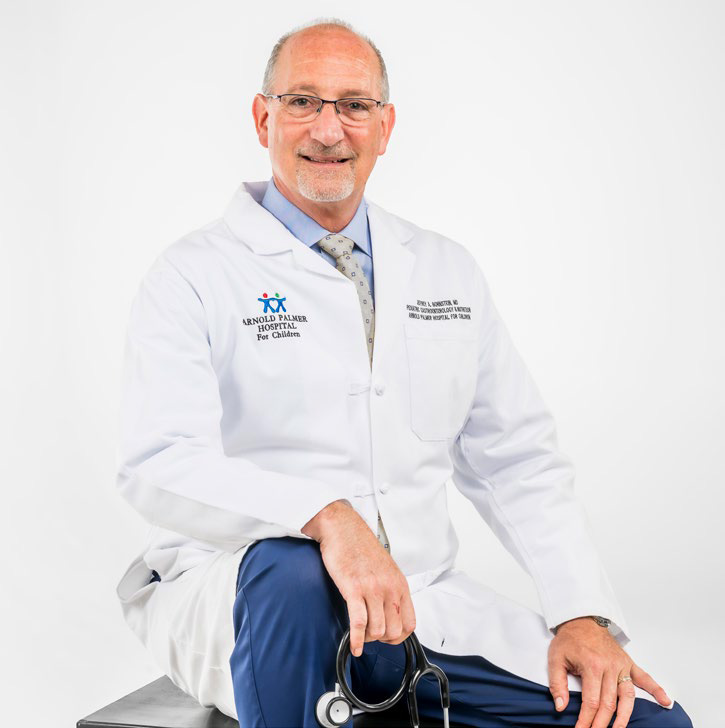
Dr. Jeffrey A. Bornstein, Pediatric Gastroenterology
Division Chief, Center for Digestive Health and Nutrition Orlando Health Arnold Palmer Hospital for Children
At the Orlando Health Arnold Palmer Hospital for Children Center for Digestive Health, many of our patients are in our care for extended periods of time, so we develop close relationships with them.
One patient, Abel, was born with major gastrointestinal problems, and he couldn’t breathe while asleep. Since birth, he has endured years of IV nutrition, rejected transplants, temporary blindness and more. In partnership with his family, we have helped Abel, who is now 17, grow to become a young man leading an active, fulfilling life.
Abel has played baseball, he loves to swim and play video games with his brothers and father, and he even has his learner’s permit. There’s still a long road ahead for him, but his resilience in the face of his medical conditions is deeply inspiring. Abel is just one of the thousands of patients we care for, but seeing him overcome these difficult circumstances and enjoy life means the world to me.
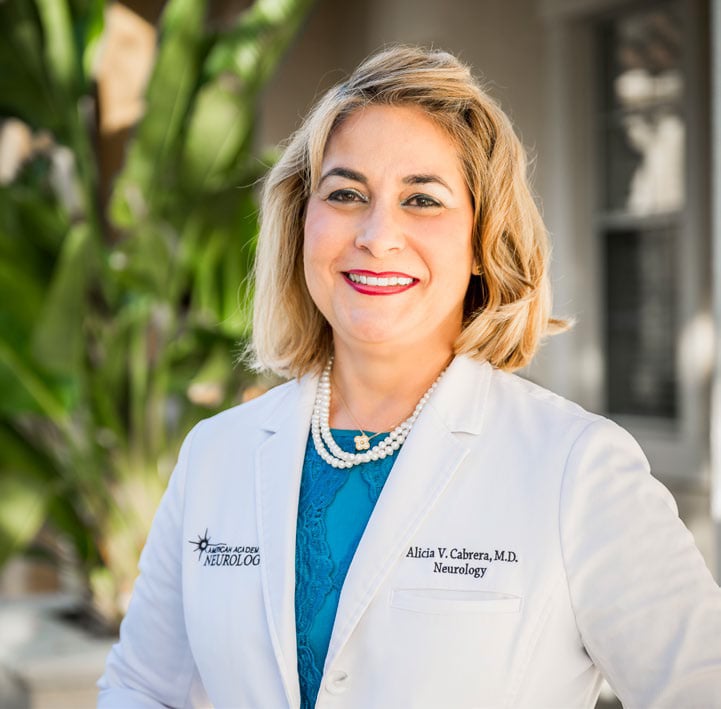
Dr. Alicia V. Cabrera, Neurology
Neurology of Central Florida
I was always fascinated by the brain’s complexity and wanted to become a neurologist. However, for a long time, we had limited or no treatment options for many debilitating neurological conditions.
A particular moment stands out to me during my career: it was when I started treating a young nurse with multiple sclerosis. She was experiencing disabling relapses and after the initial visit, she quickly deteriorated and became practically wheelchair bound. Her disease was very active, and various medications were no longer working. A more aggressive approach was needed, and after switching her to a novel infusion strategy, we were amazed by her recovery. She no longer needed the wheelchair or a urinary catheterization. It was such a rewarding realization for me that the patient had improved greatly, and that neurology was no longer confined to that obscure area of barely treatable diseases. The patient has been forever grateful, and it makes me happy when I see her. The influx of effective treatments in many areas of neurology, and the positive impact on the patients, are the biggest driving forces behind my ever-growing enthusiasm as a clinician and investigator.
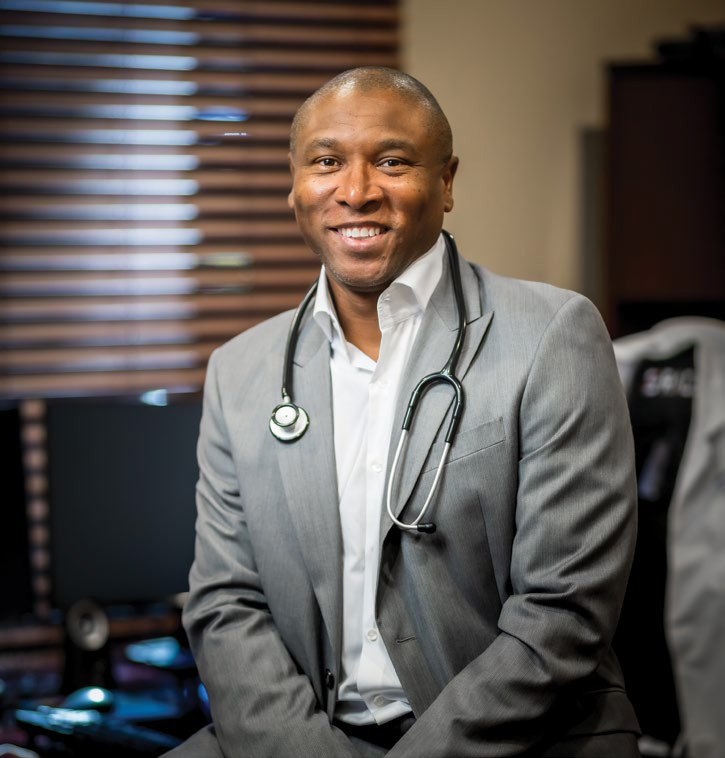
Dr. Akinyemi O. Ajayi, Pediatric Pulmonology
President, Children’s Lung, Asthma and Sleep Specialists
As a pediatric specialist, I care for many extremely ill children, and I often have the opportunity to see them grow up and witness memorable moments in their lives. Recently, one of my patients with a chronic pulmonary condition was seriously ill and there was a possibility of performing a tracheostomy to help him breathe. During this time, his high school graduation was less than a week away and it meant the world to him to attend. I, along with my pulmonary team and the ICU team agreed to hold off on placing the tracheostomy tube and instead continued aggressive management and physiotherapy. He came off the ventilator two days before his graduation and I got AdventHealth for Children to send him with a day pass from the ICU by ambulance with a medical team so he could walk the stage at his graduation. Seeing the look of joy on his face and the roar from his friends and family when he was called up reaffirmed why I love my profession.
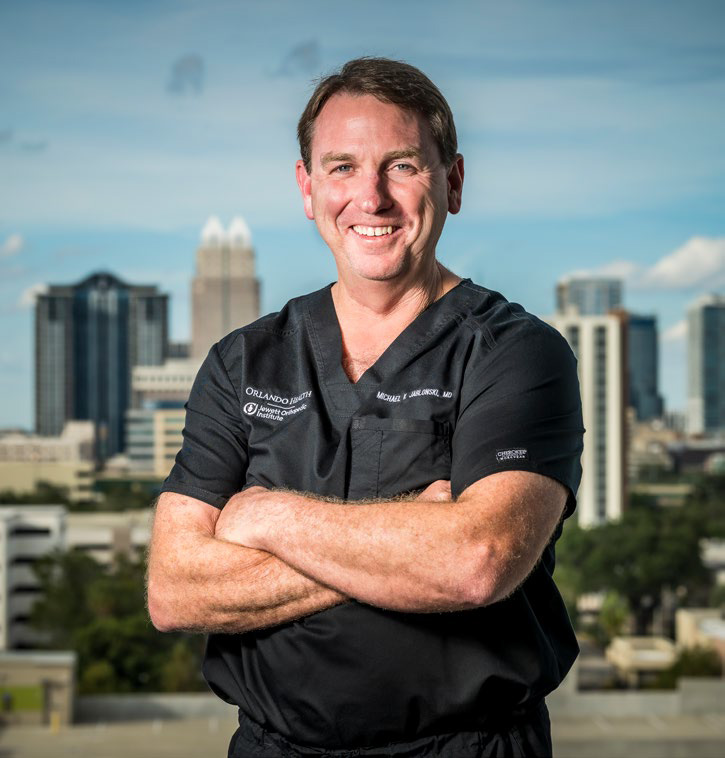
Dr. Michael V. Jablonski Orthopedic Surgery
President, Orlando Health Jewett Orthopedic Institute
My dad, a urologist, was my inspiration to study medicine. When I was 15, he invited me to watch a kidney transplant. As he talked to the patient’s family, I saw how his work changed lives for the better.
I chose orthopedics because we improve function and quality of life for our patients. As UCF Football’s team doctor, I was one of many physicians caring for quarterback McKenzie Milton after his traumatic knee injury in a game at USF. His injury threatened not just his football career but his everyday function. During his recovery I grew close to him and his family; seeing McKenzie return to play collegiate football was deeply emotional. I also grew close to other physicians caring for him, including Dr. Bruce Levy, who left the Mayo Clinic to join Orlando Health. Recruiting physicians from the top-ranked hospital in the world to Orlando Health speaks volumes about what we are able to offer our patients.
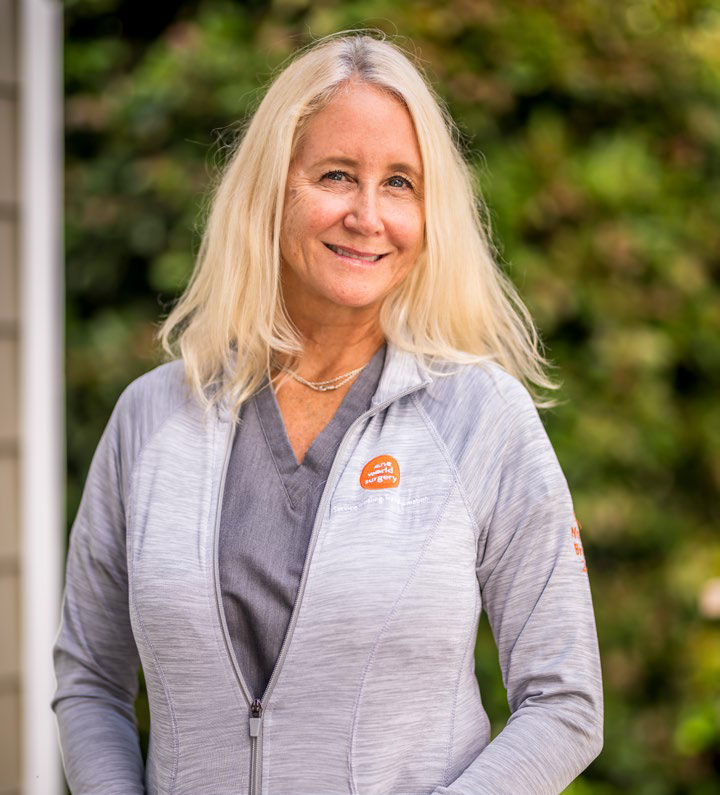
Dr. Danelle K. Chambers General Surgery
The Surgical Group of Orlando
One of my most memorable and fun moments as a surgeon was participating in a mission trip to Honduras. The work we performed as part of One World Surgery for the underserved patients of Honduras was extremely fulfilling.
Being able to use my surgical skills to help people in need has always been an enormous gift. But the best part of this particular trip, by far, was having my daughter, who was 18 at the time, join me. She gained exposure to the working environment of the operating room and was able to assist me on several cases. There is nothing like having your child watch you perform your craft and being able to pass along some of those skills to them. Definitely a memorable experience among many others, and one we plan to revisit in 2024.
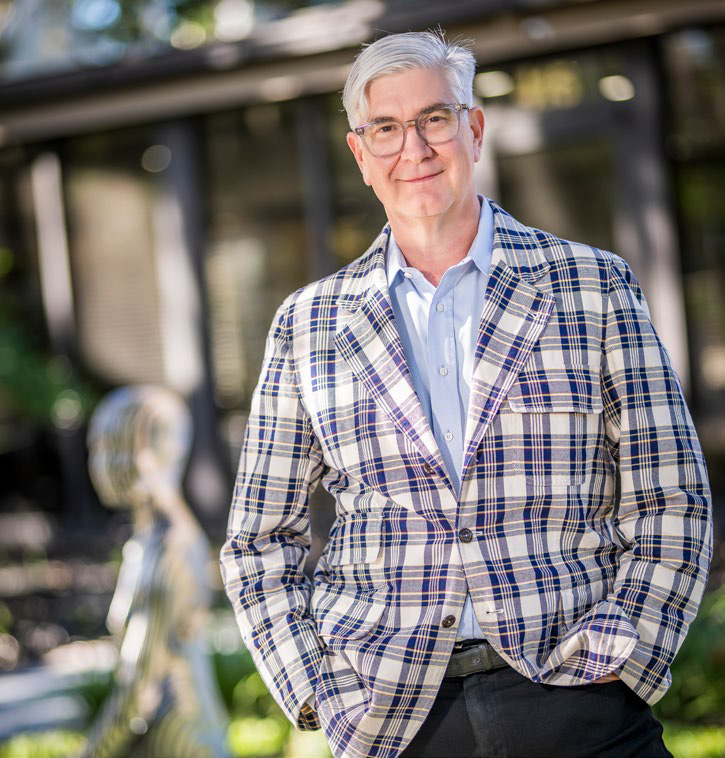
Dr. Brian D. Haas, Ophthalmology
Boutique Eye Orlando
Shortly after I started my practice years ago in Washington, D.C., a prominent U.S. Senator surprised me at my office, requesting a consult for plastic surgery. He said, “Doc, everyone thinks I’m asleep on the Senate floor! What can you do for me?” He had already seen several established surgeons in the area, but did not balk when I told him plainly that he needed both a brow lift and a droopy eyelid repair. I carefully explained what made his situation unique and offered to perform the procedure in my office the following week due to his scheduling limitations. He agreed without hesitation. His surgery was successful with a speedy recovery. One year later he dropped off a note (along with a bottle of wine) to say his colleagues were now taking him much more seriously, thanks to me, which of course was completely untrue. However, his trust in me boosted my confidence greatly and still serves to remind me that every patient is a VIP.